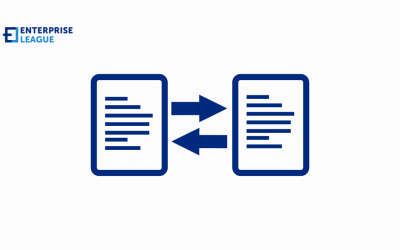Micromanaging your staff is really not the route you want to go. The negative effects of micromanagement are too many and the positive ones probably none. Why is micromanagement bad? Well, first and foremost, it damages the relationships with your employees which ultimately results in a big turnover.
If a manager continues to micromanage their staff, failing to see the abyss before them, it won’t be long before overall productivity and quality drops. The negative effects of micromanagement spread very quickly, attacking every cell of the business.
10 negative effects of micromanagement
The following examples will show you how micromanagement hurts not only the scrutinised employees but also the entire organisation. The sooner you stop micromanaging the better. Otherwise, you’re causing your own misfortune.
Affecting the morale
One of the most negative effects of micromanagement is the impact that it has on morale. Micromanagement signals that you do not trust your employee to do the job which takes a toll on engagement and often erodes confidence.
The vast majority of people want to feel they are trusted and have the freedom to express their creativity within their role. Since micromanagement is the antithesis of this then it can lead to high employee turnover.
I have spent many years in Leadership Development and have observed two broad styles of management.
The first is managers who lead teams from a position of empowerment and then the polar opposite where they are micromanaged. The tangible work product/performance is always better with teams that are led from an empowerment style. You see much more creativity and innovation coming from the teams and overall much more happiness/engagement which comes as a result of having true psychological safety.
Where the opposite is true you see so much more visible stress, burnout and an inability to take creative risks which is catastrophic for businesses. It also leads to very poor succession within those teams as development tends to be non-existent where a command and control style is prevalent.
Ginnette Harvey, Senior Vice President at Real Staffing
Smothering the supervised
Damon Nailer, CEO at Kitril
Affecting motivation
Micromanagement creates a vicious circle. Even the most talented and engaged employees might lose the motivation to overcome challenges by themselves and come with suggestions.
I once had an intern in my accounting team. It’s one of the brightest young professionals I’ve ever met. He had a perfect-match set of soft skills and was very successful with his academic studies. I wanted him to succeed in our organization by doing his first project error-free. I provided him with excessively detailed instructions and shadowed him to make him feel supported. Unfortunately, the outcome was the opposite of my expectations. This over-protection made him think he was expected to be a thoughtless doer rather than the project owner.
Mian Muneer ud din, Managing Partner at Beaufort Associates
Impacting work performance
Later, I found out that he usually does it to everyone to insert his authoritativeness since he was new to his role and wants everyone to acknowledge him. I had a one on one discussion with him and at least he understood where I was coming from. He finally adjusted himself on how to handle our team and found other tasks he can do rather than keep an eye on everything we do.”
Dexter Grima, Founder & CEO, VitaBright
Draining the confidence
While in substance, I believe daily meetings about tasks progress are beneficial when done right, I also thought spending one hour and a half per day was too much. Added to the overload of work, me and my colleagues spent considerable time detailing things that didn’t concern other participants. We were many to have little enthusiasm for this meeting. The feeling of having to justify every single decision to the manager was really draining me and my confidence.
Another effect it had on me was blocking my comprehension of the upper management’s decision. I was so stuck in this micromanagement bubble that I lost sight of my sense of purpose and my added-value as an engineer in the company.
Ludovic Chung-Sao, Zen Soundproof
Limiting creative development
Stefan Smulders, Founder & CEO of Expandi
Doubting oneself abilities
I had the unpleasant experience of being micromanaged in a former job and it negatively affected my confidence. My manager would pick over the tiniest aspects of my work and it led to me doubting my own abilities. Prior to him taking up the post, I had rarely received negative feedback about my performance.
Fortunately, he left the company within a few months and the manager who took over gave me breathing space to actually do my job. When I no longer felt under constant scrutiny my confidence returned.
Brandon Wachs, Eyewear Specialist at Shark Eyes Inc
Burning you out
Micromanagement is the recipe for your own burnout. Constantly looking over many shoulders daily will quickly burn you out. With burnouts, eventually, you’ll adjust to hating your job and maybe end up quitting.
As Director of Marketing, I used to always look over my workers’ shoulders to make sure that everything is on the right track. In reality, everything was always right; I just added stress on myself trying to find something. But after a few months, I quickly got tired of having to stress out over other people’s jobs and not focus on my own.
Chris Prasad, Director Of Marketing at JookSMS
Increasing staff turnover rate
Working in a startup business, I have closely observed this as there were only a few employees in the company, and it operated through micromanagement. The boss was always there and kept roaming around, keeping an eye on every individual and inquiring about every task. This demotivated not just me but all my colleagues too and from time to time we all switched our jobs.
Cale Loken, CEO at 301 Madison Consulting
Missing the big picture
In my experience, it is very easy to get caught in solving minor issues every day that it becomes almost addictive. Managers feel the need to oversee every process, yet they easily miss out on crucial strategic decisions. In the long run, this habit can cause severe imbalances in the workplace.
Nick Chernets, CEO of Data for SEO
Conclusion
Now that we’ve understood how micromanagement hurts the business it’s time you stop breathing over your employees’ shoulders and let them breathe freely. The moment you stop micromanaging is the moment their full potential will take off your company will start flourishing. Don’t let the negative effects of micromanagement embed and create a toxic company culture.
More must-read stories from Enterprise League:
- 26 hiring mistakes employers make and how to prevent them.
- How to ask for a deposit in a contract without being awkward or losing a client.
- Find out how to delegate work so it actually gets done.
Related Articles
PDFs and the debate between tradition and innovation
Curious about the future of PDF? Learn about its integration with new technologies and explore some practical PDF tips to leverage all the power of this format!
The 10 Ds of entrepreneurship: Why are they important?
Are you familiar with the 10 Ds of entrepreneurship? Let’s see if you possess some or all of them that will launch you for success.
Optimizing performance and reliability in managed file transfer systems
Optimizing the performance and reliability of MFT systems is a continuous process that requires attention to infrastructure, software and strategic processes.
PDFs and the debate between tradition and innovation
Curious about the future of PDF? Learn about its integration with new technologies and explore some practical PDF tips to leverage all the power of this format!
The 10 Ds of entrepreneurship: Why are they important?
Are you familiar with the 10 Ds of entrepreneurship? Let’s see if you possess some or all of them that will launch you for success.






